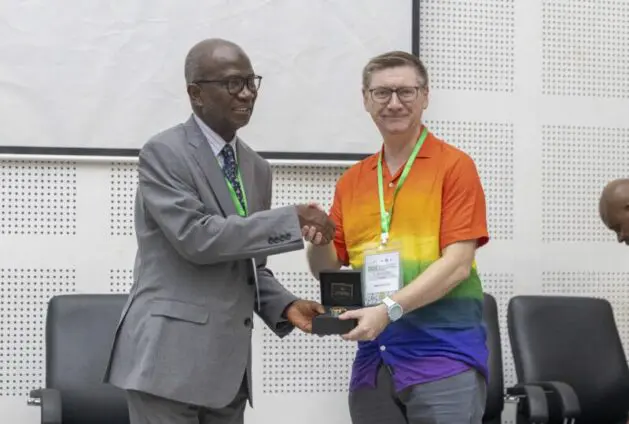Emeritus Professor George Ofori from London South Bank University has called on construction management researchers to take into account the specific contexts of project execution, particularly in developing countries.
During his speech at the Joint Safety, Health, and Well-Being in Construction (W099) and People in Construction (W123) International Conference in Kumasi, he underscored the importance of adapting frameworks and approaches to align with local conditions.
“In developing countries, it is essential to acknowledge the unique environments in which projects are carried out and to identify more suitable management strategies. We need to establish a body of knowledge that incorporates these new methods,” Professor Ofori remarked.
He further explained that “the context for project execution can differ significantly from the environments where these frameworks were initially designed. Tailored solutions are necessary for these regions.”
Professor Ofori is confident that enhancing construction knowledge and practices will improve project management effectiveness.

“Developing countries require a diverse array of projects to improve the quality of life for their citizens. Efficient management of these initiatives is vital, and it falls to us as researchers to cultivate the best knowledge base possible,” he stated.
Former KNUST Pro-Vice Chancellor, Professor Ellis Owusu-Dabo, also addressed the audience, emphasizing the advantages of fostering mentally healthy cities. He noted that such environments enhance workplace productivity and mitigate security risks associated with substance abuse.
The four-day conference, themed “Harmony in Global Construction Trends: People, Technology, and Society,” aims to promote collaboration, inspire innovative solutions, and encourage dialogue for global improvement in the construction sector.
The event unites two key task groups from the International Council for Research and Innovation in Building and Construction (CIB) to tackle significant challenges facing the industry.
Professor Emmanuel Adinyira, Chairman of the Organizing Committee, highlighted the critical importance of worker well-being in construction.
“The safety, health, and well-being of the construction workforce are essential, especially in light of high accident rates and work-related illnesses. This focus is vital for our development,” he stated.
The conference serves as a platform for discussing the latest research, advancements, and strategies aimed at enhancing safety protocols, promoting worker well-being, and integrating new technologies into construction practices.
Speaking on behalf of KNUST’s Vice-Chancellor, Professor John Tiah Bugri, Provost of the College of Art and Built Environment, stressed that safety in construction is not merely a regulatory requirement but a moral obligation. He reaffirmed KNUST’s commitment to advancing safety and health through interdisciplinary research.
Ing. Justice Koranteng, Regional Manager of the Department of Feeder Roads in the Ashanti Region, represented the Minister for Roads and Highways, Asenso Boakye. He urged a shift towards prioritizing workforce health and safety and emphasized the importance of greater inclusivity for women in the construction industry.
DISCLAIMER: The views, comments, opinions, contributions, and statements made by readers and contributors on this platform do not necessarily reflect the views or policies of Multimedia Group Limited.




